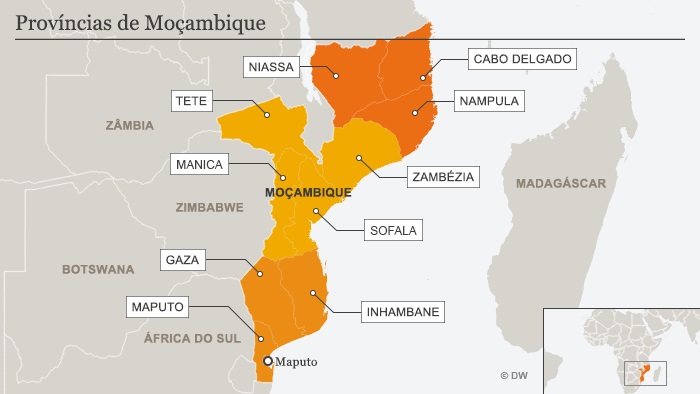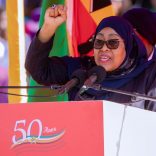Samia assures Mozambique of Tanzania’s commitment to strengthening bilateral ties
Watch: Provincial governors will not be elected – By Joseph Hanlon

DW
Afonso Dhlakama has won his main demand of three years ago, and has gained the right to appoint governors in provinces where Renamo wins. Some elected mayors have proved too independent, and neither Frelimo nor Renamo were willing to take the risk of elected governors.
But negotiations are deadlocked on Renamo’s demand for parity in the defence and security forces, he said in an interview with STV (27 Dec) and O Pais (28 Dec). The interview is on https://www.youtube.com/watch?v=Vn6K8fMsbPE. See the video below.
“From the beginning, we have defended that governors should be directly elected,” Dhlakama said. “My brothers in Frelimo did not share the same idea. For them, governors were to be elected by members of the provincial assembly in a secret vote.” He continued that after discussions with President Felipe Nyusi, they compromised on three options submitted by Dhlakama. Nyusi and Frelimo will choose one. Parliament (Assembleia da Republica) will not make the choice, but simply “formalize” Frelimo’s choice, Dhlakama said.
The three options are:
- The head of the party list (the first candidate on the list) which gains the most votes for provincial assembly becomes governor.
- The party which wins the provincial assembly will select one member of the list to be governor.
- The party which wins the provincial assembly could select anyone to be governor.
In all three cases, the head of the national party would effectively make the choice. For both Frelimo and Renamo, the head of the national party at least confirms the heads of all the party lists and would have a dominant influence in any choice made by party members in the provincial assembly.
Dhlakama says that Nyusi has promised to have a decentralization document to submit to parliament within 30 days, so that it can be approved and the new structures announced when Nyusi announces the presidential election – the date must be in October 2019 and must be announced 18 months in advance, that is, in April 2018.
Although Dhlakama claims he always backed an elected governor, he only moved over to this position in 2016. In March 2015 Dhlakama tabled a proposal to parliament that governors would be named by the presidential candidate of the party that gained the most votes in a province, and that decentralisation would follow the model of the municipalities, but with appointed governors instead of elected mayors. (See this newsletter 282 and 321) Nearly three years later, it appears that Dhlakama’s proposal has been accepted.
Comment: The outcome should not be surprising. Neither Renamo nor Frelimo wants to risk a governor building their own power base and challenging the party; to win an election a governor would need a certain independent identity and charisma, whereas an appointed governor can be a lower key party loyalist. For both sides, elected mayors have proven problematic, and the Frelimo government has introduced a whole parallel system of an appointed governor for Maputo city and administrators for the other municipalities, entirely to keep a check on the mayors – most of whom are Frelimo.
And both parties have stopped too successful mayors from standing again. Most famously, in 2008 at the last minute Dhlakama refused to nominate the popular Daviz Simango to stand again in Beira, but Daviz won by a large majority as an independent and founded his own opposition party. And Frelimo did not let the popular Eneas Comiche stand again for mayor of Maputo in 2003 because he was too honest; the safer David Simango did win for Frelimo. But in 2011 Frelimo forced three mayors to stand down and the opposition MDM’s Manuel Araujo won in Quelimane, in part because the local party would not back the national Frelimo choice. The lesson of Simango and Araujo is that it is better to appoint than to risk elections.
By Joseph Hanlon













Leave a Reply
Be the First to Comment!
You must be logged in to post a comment.
You must be logged in to post a comment.